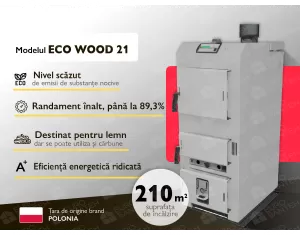Wood heating boiler
When we think of wood heating boilers, we conjure up images of old, reliable stoves where meals were cooked, and chilly winter evenings were spent huddled together, seeking warmth and companionship. Nostalgia for those times fills our hearts with warmth, driving us to preserve this spirit by opting for wood heating boilers.
Yet, beyond the romantic associations, a wood heating boiler boasts several practical advantages. Firstly, there's its eco-friendliness. Wood is a natural material that doesn't pollute the environment and emits minimal harmful substances when burned. The combustion of wood releases primarily carbon dioxide, which is absorbed by vegetation, contributing to the natural cycle.
Moreover, a wood heating boiler is economical. The cost of wood is generally lower than that of gas or electricity, making it an attractive option for those looking to save on heating bills. Additionally, wood can often be obtained locally or even from one's own property, further reducing heating expenses.
Reliability is another hallmark of wood heating boilers. Unlike gas or electric boilers, which may fail during power outages, wood boilers continue to function independently. This reliability is especially crucial in rural areas or locations with unreliable power grids.
Of course, using a wood heating boiler requires effort and care. Regularly loading wood, monitoring temperatures, and ensuring proper ventilation are essential tasks. However, for many, this becomes not just a chore but a pleasurable ritual that imbues life with additional meaning.
A wood heating boiler is more than just a piece of equipment; it's a part of our history, culture, and traditions. It connects us to the past and teaches us to cherish life's simple pleasures, like the warmth of home and cozy evenings with loved ones. Let's hope these wood boilers continue to warm our hearts and homes, enriching our lives with comfort and coziness.























